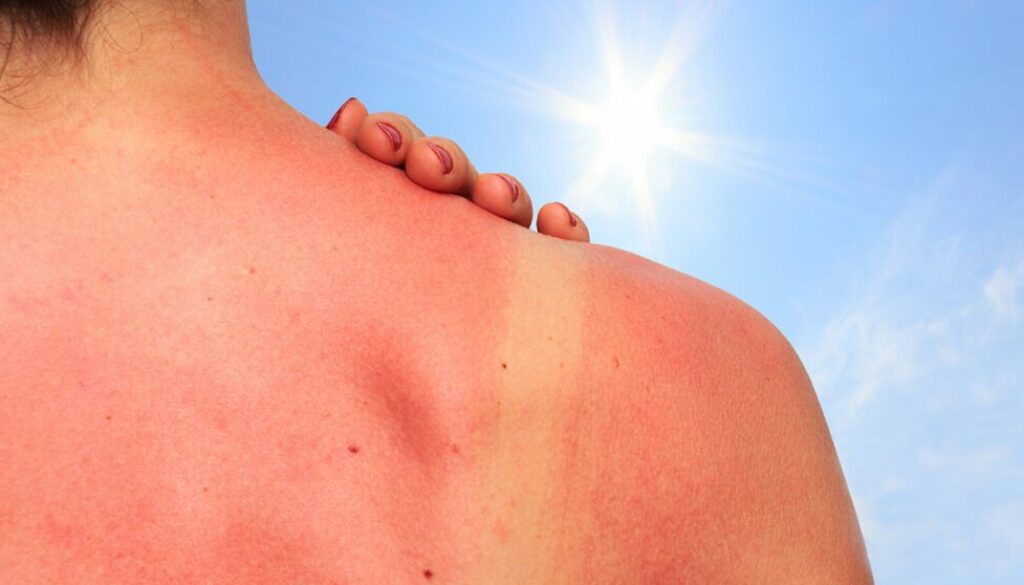Skin Cancer: Are you at risk?
Did you know February is National Cancer Prevention Month? The team at CMC Dermatology believes the best way to observe this month is to help patients understand their skin cancer risk. Let’s discuss skin cancer, your risks, and some things you can do to keep your skin healthy.
What Is Skin Cancer?
Cancer is a disease in which abnormal cells develop and divide uncontrollably. Skin cancer, as its name suggests, is the abnormal growth of skin cells. It can occur on any area of your body, not just areas exposed to the sun.
Skin cancer is the most common type of cancer in the United States. The prognosis for most types of skin cancer is generally good, with early diagnosis and treatment. That is why understanding your skin cancer risks and the signs of skin cancer is so important. This knowledge can help to save your life.
Are There Different Kinds of Skin Cancer?
There are! The three most common types of skin cancer are:
- Basal cell carcinoma – This most common type of skin cancer is considered the least aggressive because it grows slowly however it can destroy the surrounding tissue.
- Squamous cell carcinoma – This is the second most common type of skin cancer. It can be aggressive but is easily treatable. That is why early detection and treatment are so important.
- Melanoma – This type of skin cancer is not to be taken lightly. It tends to be more aggressive and can grow and spread to other areas of the body. However, melanoma can be highly curable if it is diagnosed and treated early.
What Is Your Skin Cancer Risk?
Anyone can get skin cancer. However, certain factors that may put you at a greater risk of developing skin cancer:
- Exposure to ultraviolet (UV) rays including sunlight and tanning beds
- A family history of skin cancer
- A personal history of skin cancer
- Certain types of moles
- Sun-sensitive skin that freckles or quickly reddens with sun exposure
- Older age
These physical characteristics can also indicate if you are at a greater risk of developing skin cancer:
- Light or fair skin
- Green or blue eyes
- Red or blonde hair
Keep your skin healthy and safe
The skin is the largest organ in the human body, and it’s essential to take care of it just like we would take care of any other part of our bodies. There are a few important preventative measures you can take to keep your skin healthy and safe.
1. Protect your skin against the sun
Sun safety habits are crucial to avoid skin cancer during your lifetime. Regularly wear sunscreen with at least SPF 30 all year round and ensure that it protects against both UVA and UVB light. Reapply sunscreen every two hours, especially if you’re sweating or swimming. Shield your skin with wide-brimmed hats as well as UV-protective clothing and sunglasses. Avoid prolonged exposure to direct sun during the hours of 10am to 4pm.

2. Build a healthy skincare regime
Another important component of healthy skin is being mindful of your skincare routine and the products you use. Your skin is the first protective barrier for your body, and dirt, germs, air pollution, and more all come into contact with your skin every day. Every individual’s body is unique and a trained dermatology provider can help you build a skincare routine that works for you and your needs.
3. Maintain your overall health
You can reduce your risk of any cancer by making healthy choices like eating a diet rich in antioxidants, staying hydrated with water, avoiding drinks with added sugar, and exercising regularly. Smoking also increases your risk of developing skin cancer.
4. Be mindful of skin changes
Know your body. You should regularly check your own body for abnormal blemishes, moles, scabs, crusty areas, and discolorations. Also, look for changes in existing moles. Report these to your physician and have them checked.
5. Get an annual skin exam
Consulting the specialized care of a trained dermatology provider at least once a year is critically important for addressing the specific needs of the skin. At an annual full-body skin check, your provider examines your skin and looks for moles, freckles, or suspicious spots that could be symptomatic of skin cancer or could lead to skin cancer in the future. Depending on what is found, biopsies or other treatments might be needed to keep your body healthy.
Schedule Your Skin Cancer Screening
Be proactive. Regular skin cancer screenings are the best way to prevent and treat skin cancer. Schedule your skin cancer screening today with our fellowship-trained doctors at CMC Dermatology.
Call 843-234-8700 to make an appointment.
Yumeng Li, MD, MS
ACGME Fellowship trained in Mohs Micrographic Surgery/Cosmetic Dermatology
ACGME Fellowship trained in Dermatopathology
ASDS Fellowship trained in Cosmetic Dermatology
Board certified in Dermatology and Dermatopathology





